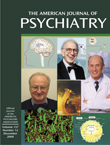James Joyce
In Plato’s Apology, Socrates states that “those…things about which you hear me examining myself and others, is the greatest good of man, and…the unexamined life is not worth living.” Certainly the plethora of biographies and autobiographies suggests that the world has taken Socrates’ advice to heart, mostly in lengthy and often multivolume works: Leonard Woolf’s five volumes of self-examination, Leon Edel’s seven volumes on Henry James. Recently there has been a resurgence of interest in shorter and emotionally immediate versions. Echoing Aubrey’s Brief Lives and Lytton Strachey’s Eminent Victorians, Weidenfeld and Nicolson in London and Penguin in New York have initiated a series of brief and focused biographies written by nonspecialists who have, however, a special appreciation for their subject: Edmund White on Proust, McMurtry on Crazy Horse, and Gary Wills on Saint Augustine. Happily, the list includes Edna O’Brien on James Joyce.
Joyce’s experience of being banned in Ireland has been repeated in O’Brien’s own life. Perhaps more important, she also shares his love of language:
He said he had all the words, it was simply a question of putting them in the right order. He would pore over each word not only for its rhythm, its sense, its aptness, its beauty, its vulgarity, its myriad associativeness, but sometimes for its prophetic core. (p. 100)
Joyce repeating the word over and over again, to savour their sounds which had replaced sight and touch. (p. 165)
O’Brien describes Joyce’s “assault on language, his dizzying escalations, words strung together to take on another light, another lustre; multiple meanings” (p. 13).
He was laying siege to literature.…Art was to move on to reveal ideas and formless spiritual essences, the old language was to be put to sleep. Words would be broken down to extract the substance from them.…Words spliced, added to and compounded to have a denser meaning. The boudoir for instance, where Anna Livia with the help of her seven rainbow girls braids her hair, was converted to boudelaire, a meshing of bou for mud and a deference to Baudelaire. (p. 137)
“Poor joist,” as she refers to him, was “a funnominal man, supporting a gay house in a slum of despond” (p. 1). Perhaps, as O’Brien suggests, his “galloping unpunctuated style” (p. 19) came from his mother, but he never mentioned her after her death. His escape from Ireland was a flight from his drunken, profligate father, who had plunged the family into debt and increasing despair. He also left behind the Jesuits of his early schooling and his altar-boy Catholicism. He gave up family, church, and state in order to write as he had to:
Do writers have to be such monsters in order to create? I believe that they do. It is a paradox that while wrestling with language to capture the human condition they become more callous, and cut off from the very human traits which they so glisteningly depict. There can be no outer responsibility, no interruptions, only the ongoing inner drone, rhythmic, insistent, struggling to make a living moment of both beauty and austerity. (p. 130)
O’Brien also captures other aspects of Joyce’s life: his capacity for work (she estimates 50,000 hours to produce Ulysses); his complex, loving, and embattled relationship with his wife, Nora; and his despair over his mad daughter, Lucia. She accurately portrays, in 180 enthralling pages, Nora’s “poor Jim, he was such a great man” (p. 173).
Read this, reread Joyce himself, and read Edna O’Brien!



